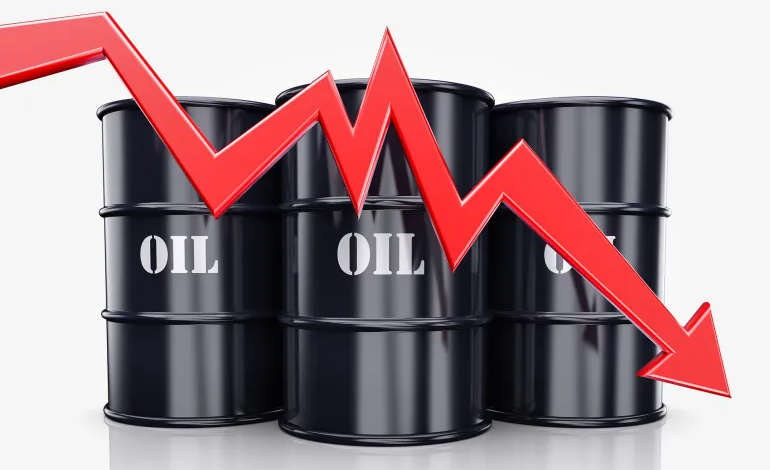Expert analysis: Oil prices decline despite tensions


Oil prices retreated in early trading on Wednesday amid concerns over global demand due to economic sluggishness in China and fading hopes of near-term US interest rate cuts, outweighing supply concerns amid escalating tensions in the Middle East.
Brent crude futures for nearest delivery slipped 0.39% to $89.64 a barrel at the time of reporting, while US crude futures dropped 0.56% to $84.88 a barrel.
Oil prices thus saw a slight decline compared to last week’s close, with Brent crude ending the week at $90.15 a barrel and US crude at $85.45 a barrel.
Oil prices have been on the decline since the beginning of the week, as unfavorable economic conditions weighed on investor sentiment, dampening gains driven by geopolitical tensions. Investors are closely watching how Israel will respond to Iran’s attack earlier this week.
Overall, oil prices have managed to avoid a significant increase even after Iran, a major oil producer, attacked Israel with drones and missiles, risking widening the conflict in the oil-rich Middle East.
Market strategist Jad Hariri says oil prices are influenced by several factors, including geopolitical risks, supply and demand dynamics, and the performance of the global economy, as well as OPEC+ voluntary production cuts.
Hariri told Al Jazeera that Iran’s statements indicating the end of military retaliation against Israel and repeated signals of de-escalation have eased concerns about negative impacts on supplies, stabilizing oil prices.
Hariri believes that the current tensions between Iran and Israel remain temporary, thus having no significant direct impact on the oil market compared to the ongoing Russia-Ukraine war. However, he notes that tensions could still have an upward impact on oil prices due to increased fuel demand, as ships are forced to detour around the Red Sea’s Bab el-Mandeb Strait for fear of targeting, in addition to increased reliance on air freight by countries and entities.
Market expectations included some impact from Iran’s actions, with warnings issued before the attack, although the extent of the expected response remains unclear.
Analyst Olli Hovela from SEB Bank stated, “The attack, which was announced in advance, resulted in minor damage, as Israeli forces and their allies intercepted almost all projectiles.”
From late Saturday to early Sunday, Iran launched over 300 drones, cruise missiles, and ballistic missiles at Israel, causing only minor damage, including to a military base in its south.
Analyst Tamás Varga from PVM Oil Associates stated, “The market dismisses any potential escalation of the crisis between Iran and Israel. It is believed that any Israeli retaliation will be calculated, partly due to US and international pressure to exercise restraint.”
Varga, quoted by AFP, added, “Iran will also seek to avoid worsening the situation, as it will want to continue exporting crude oil.”
US Treasury Secretary Janet Yellen mentioned the possibility of imposing further sanctions on Iran, which has been under severe US sanctions since Washington unilaterally withdrew from the historic agreement in 2018 that eased sanctions on Iran in exchange for restrictions on its nuclear program.
The sanctions have led to a sharp drop in Iranian oil revenues and further restrictions on trade, deepening decades-long hostility with the United States and Israel.
Iran continues to produce around 3.2 million barrels of oil per day, according to the International Energy Agency, which ranked it ninth among the world’s largest crude oil producers last year.
Hovela stated, “Israel may exert pressure on its ally the United States to impose stricter sanctions on Iran.”
He added, “The imposition of such sanctions, especially on Iranian oil exports, could lead to a loss of between 500,000 to 1 million barrels per day of oil supplies.”
However, it is assumed that Iran’s daily production will remain above approximately 1.9 million barrels of oil, as it was producing in mid-2020, after the then-US President Donald Trump withdrew from the nuclear agreement.
Varga expects that the surplus oil capacity within OPEC “should be sufficient to mitigate the impact of any supply disruption” due to sanctions on Iran.
He said this would be the case as long as Saudi Arabia, the leading oil producer, is not dragged into the conflict, and the Strait of Hormuz, a key maritime passage for crude oil transport, remains open.
Varga added, “At present, the market believes that sliding into a serious confrontation can be avoided.”








